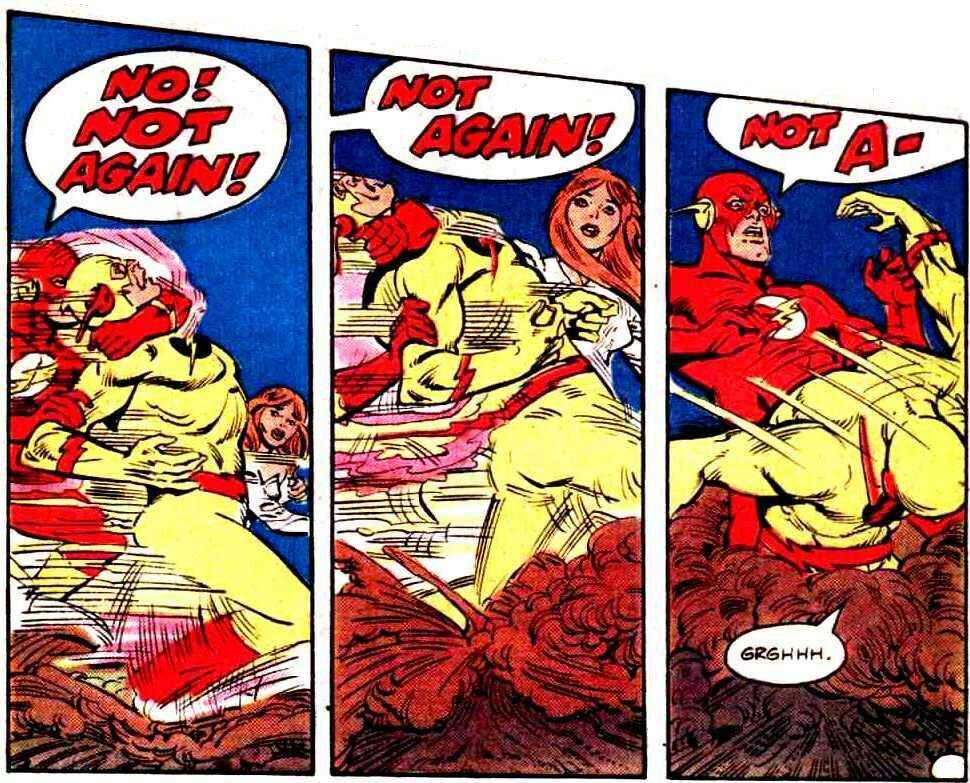The Flash is a TV show narrating the origin and the story of Barry Allen, CSI that acquires super speed by being struck by a lightning and become, as you may guess, the Flash. The episodes generally have the structure of a comic book: there is a bad guy, it is hard to take him down but eventually we succeed. This aspect gives a bright tone and a nice pace to the show. Alongside with that, we have the main plot that runs for the entire season (20 something episodes) and, with its twists, is the best aspect of the series.
As one may expect, everything in the show is inspired by the comic books. However, and this is something that I absolutely love about the show, there is quite a dose of originality both in the characters and in the primary or secondary story lines. This is nontrivial for this kind of shows, often scared of pissing the comic book fans off or too reverential to the original material. The final effect is a very enjoyable and entertaining show both for old time fans and those approaching this amazing superhero for the first time.
The tone is kept bright, among other things, by a good comedy, extraordinary references to old and new popular shows, and by the comic book structure of the episodes itself. To be fair, keep this tone is a necessity to soften up the tragedy constantly happening in the main plot.
To explain why I associate Barry Allen to a tragedy, I have to dig deep into my memories of 20 years ago, when I started reading the comic books.
In the DC universe, there have been many Flashes, but Barry Allen is surely the most important one. The reason is not only that he has more exposure than everyone else, but also because his storyline is by far the more involving, in my opinion. Barry Allen is constantly brought into a path of pain and loneliness, no matter how hard he tries. The tragedy begins (not chronologically, in comic issues) when his archenemy, Professor Zoom (the Reverse-Flash), comes back from the future and kills his wife, Iris West. A homicide that drives him insane and makes him violent for several issues. Years after, when he is going to get married again, the Reverse-Flash makes his appearance with the same purpose: kill his future wife on their wedding day. In the attempt of stopping him (in an excruciating sequence), Barry kills his enemy by breaking his neck.
 |
| From The Flash Vol.1 #324 |
 |
| Crisis on Infinite Earths #8 |
You got the drill; it is hard to not feel for this character. The spirit of sacrifice, the constant tragedy, a hero steadily looking for friends, for people that could fill the empty places of his life. All these themes are nicely represented in the TV Series. Yes, so far the events are different than the original material, but it is not hard to find the same kind of emotions and challenges of the comic books (without the deja vu feeling we don't like).
 |
| The Flash: Rebirth #5 |
The Flash is the story of an extraordinary man, facing an extraordinary villain, and walking in a world of pain to find something to run to instead of run from. What we saw in the first two seasons was designed to transmit us the internal conflict of Barry Allen. We saw our beloved hero reaching the peak of this conflict and doing the most egoistic move of his life: coming back to time and fix everything bad the Reverse-Flash did (thus virtually erasing everything happened on screen so far).
Since this is exactly the premise of Flashpoint, I'm looking forward to see how the authors will apply the originality shown in the past two seasons. Some people on the internet is very excited by seeing Flashpoint on screen, but I think they will not use the original material more than before: it would be difficult to introduce a Batman or a Brasil ruled by the Nazis...
Before concluding this too long post, a few words on the criticalities of this series. The biggest one is surely an excessive amount of the so-called filler episodes. I understand the necessity of covering several months with a season, but the feeling is that every season could have been 3/4 episodes shorter.
I also think that the comic book structure does not work ideally in the mentioned filler episodes. By resolving the arc of tension within 40 minutes, the plot looks very rushed if it is not necessary to the development of the main storyline: it works in a comic book, not on the screen.
At last, one slip in the otherwise brilliant TV adaptation of the original material. We met the Reverse-Flash, the perfect villain driving the comic book story, but we never saw a glimpse of his motivations. We were told that he hates the Flash, but we never had a chance of seeing how or why he does it. I believe that his jealousy, his obsession, and his anger deserve to be on screen to give us a tridimensional image of a villain so important to be often compared to the Joker in the comic books. This is both a flaw of the show and the main reason why I'm so excited for the new season: if the source material is Flashpoint, there will be plenty of opportunities to give Eobard Thwane the deepness he deserves.
I wrote too much, it always happens when I like something too much. For other considerations on the Flash as a TV series, you can read this post. Otherwise, let me know in the comment section how do you like this show.
No comments:
Post a Comment